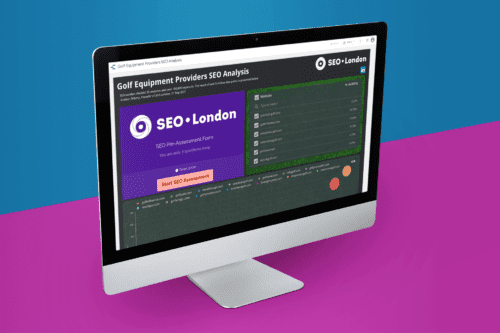You’re probably familiar with the basics of on-page SEO. Almost every element of your website, from your copy to your design, affects your rank in Google and other search engines. But your SEO efforts shouldn’t begin and end with your own site. Off-page SEO, also called off-site SEO, also plays a big role in how search engines evaluate your site, and if you’re not using it to your advantage, you’re missing out on valuable web traffic. Keep reading to learn the basics of off-page SEO.
Your Reputation Matters
In a nutshell, off-page SEO is the sum of how other people perceive your website or business. In other words, it’s your reputation. You already know how important reputation is in real life – brick-and-mortar businesses depend on maintaining a good image and getting plenty of word-of-mouth recommendations. It’s no different for online businesses. If you want a thriving website with lots of traffic, you’ve got to put some effort into your reputation on the web.
To cultivate a great reputation on the internet, start with an excellent product or service that lots of people want or need. You don’t have to appeal to everyone, but you should have a well-defined target market. In addition, it’s important to build customer trust by establishing your authority as an expert in your field. Last but not least, don’t forget about the likability factor. People will be more likely to purchase from you if you’re friendly and provide great customer service.
What Affects Your Off-Page SEO?
Just like on-page SEO, off-page SEO is influenced by many different factors. However, most of these factors share a common denominator: they’re geared towards getting more links. Your link profile is important because the more links you have pointing to your site from around the web, the more important Google thinks your site is. More links equal a better rank.
With that being said, you shouldn’t just think about links as you plan your off-page SEO strategy. A better method is to work on building the kind of web presence that people will want to link to. Link-building campaigns usually just lead to getting a lot of low-quality links from spammy websites, and Google might actually penalize you for it. It’s better to let the links come naturally, even if it takes longer.
So which factors are involved in creating a link-worthy web presence? Your social media activity is a big one. Content marketing such as guest blogging is another. Your Yelp reviews, mentions of your business on other websites (even without links), activity on message boards, and the comments you leave on other blogs all count as off-page SEO. Basically, anything that represents your business but isn’t on your website falls under the umbrella of off-page SEO.
How Can You Improve Your Off-Page SEO?
The bad news is that you can’t get great off-page SEO overnight. Building a reputation takes time, patience, and consistency. The good news is that there are plenty of small things you can do to start improving your off-page SEO today. Take the first step towards a better online reputation by doing these things ASAP.
• Create social media accounts, if you don’t have them already, and work out a plan for how often you’ll post. It’s especially important to use the social media platforms your target audience favors. While it’s okay to post promotional stuff, you should also mix it up with articles and videos your target audience will find interesting. The personal aspect of social media is most important for building your reputation, so make sure you respond to everyone who leaves you a comment or reaches out to you.
• Keep an eye on your reviews on sites like Yelp and Google. If someone leaves you a bad review, take the time to respond. Address their concerns and do your best to make amends. Your professionalism and good customer service will boost your reputation and lessen the damage of those negative reviews.
• If your target audience spends time on a particular forum or message board, make an account there and start answering people’s questions. Don’t spam your product or service – that will hurt your reputation, not help it. Just be friendly, knowledgeable, and helpful. Pretty soon, people will start to think of you as an expert.
• Start talking to other people in your field. Look at them as your peers and potential friends, not your rivals. Leave comments on the blogs you read, go to networking events, and reach out to influencers on Twitter. As you forge connections with others, your reputation in your field will improve, and your link profile will improve along with it.
Off-page SEO is just as important for a successful business as on-page SEO is, so don’t neglect it. Stay on the lookout for ways to expand your influence and provide more value to your potential customers, and your reputation (and sales) will grow accordingly.
 Published in: February 2022
Published in: February 2022
Last Updated in 2022-12-28T09:47:39+00:00 by Lukasz Zelezny



